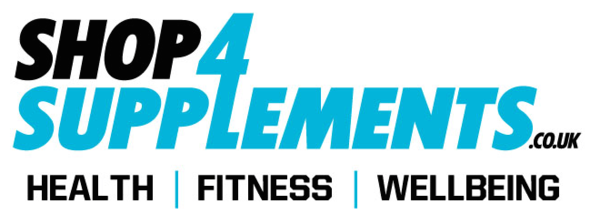- Home
- Sports Brands
- Health Brands
- Sports Nutrition
- Supplements
- About Us
- Blog
October 25, 2015
 Vitamins, minerals and other nutrients form an essential part of our diet as the many complex physiological processes within our bodies are dependent on them.We need them to prevent clinical deficiencies and also to keep the body well maintained so we can lead long and healthy lives.
If we eat a "balanced" diet then all the vitamins and minerals we need are supplied from our food and drink. But unfortunately life's not so simple! Eating on the go and convenience foods, an inevitable part of just about everyone's lifestyle, compromise our nutritional intake, and there are other times when our diet might not supply the nutrients we need.
Children, pregnant and lactating women, the highly active, those recovering from illness and the elderly are groups who may have higher nutritional demands. There is also growing evidence that some foods, particularly fruit and vegetables, may contain lower levels of nutrients than they did 50 years ago. This means we may not be achieving adequate nutritional intake through the diet and therefore supplementation may be required.
Vitamins, minerals and other nutrients form an essential part of our diet as the many complex physiological processes within our bodies are dependent on them.We need them to prevent clinical deficiencies and also to keep the body well maintained so we can lead long and healthy lives.
If we eat a "balanced" diet then all the vitamins and minerals we need are supplied from our food and drink. But unfortunately life's not so simple! Eating on the go and convenience foods, an inevitable part of just about everyone's lifestyle, compromise our nutritional intake, and there are other times when our diet might not supply the nutrients we need.
Children, pregnant and lactating women, the highly active, those recovering from illness and the elderly are groups who may have higher nutritional demands. There is also growing evidence that some foods, particularly fruit and vegetables, may contain lower levels of nutrients than they did 50 years ago. This means we may not be achieving adequate nutritional intake through the diet and therefore supplementation may be required.
 Vitamins are essential nutrients needed by the body in small amounts in order to work properly.They are vital for boosting the immune system, supporting normal growth and development and helping cells are organs to function efficiently. Vitamins are organic substances and fall into two categories: fat soluble and water-soluble.
An organic compound contains carbon. When an organism (living thing) cannot produce enough of an organic chemical compound that it needs in tiny amounts, and has to get it from food, it is called a vitamin.
Sometimes the compound is a vitamin for a human but not for some other animals. For example, vitamin C (ascorbic acid) is a vitamin for humans but not for dogs, because dogs can produce (synthesize) enough for their own needs, while humans cannot.
Vitamins are essential nutrients needed by the body in small amounts in order to work properly.They are vital for boosting the immune system, supporting normal growth and development and helping cells are organs to function efficiently. Vitamins are organic substances and fall into two categories: fat soluble and water-soluble.
An organic compound contains carbon. When an organism (living thing) cannot produce enough of an organic chemical compound that it needs in tiny amounts, and has to get it from food, it is called a vitamin.
Sometimes the compound is a vitamin for a human but not for some other animals. For example, vitamin C (ascorbic acid) is a vitamin for humans but not for dogs, because dogs can produce (synthesize) enough for their own needs, while humans cannot.
 Fat-soluble vitamins - A,D,E and K , dissolve in fat and can be stored in the body.
Water-soluble vitamins - C and the B-complex vitamins (such as vitamins B6,B12,niacin ,riboflavin and folate)- need to dissolve in water before the body can absorb them. Consequently the body cannot store these vitamins and so it's important to make sure they are replenished with a fresh supply daily.
Fat-soluble vitamins - A,D,E and K , dissolve in fat and can be stored in the body.
Water-soluble vitamins - C and the B-complex vitamins (such as vitamins B6,B12,niacin ,riboflavin and folate)- need to dissolve in water before the body can absorb them. Consequently the body cannot store these vitamins and so it's important to make sure they are replenished with a fresh supply daily.
A varied, healthy diet is the best source of vitamins but modern lifestyles often mean that people may need to supplement their diet with vitamins for a variety of reasons
 Minerals are naturally occurring elements and function as coenzyme in the body, vital for the effectiveness of vitamins and helping the body to function properly and stay strong.
Generally the body requires a greater amount of minerals than vitamins and the two essential minerals are calcium and iron, although there are also other types of minerals that are an important part of a healthy diet.These trace minerals include potassium,sodium,zinc,manganese, copper iodine and selenium.
Mineral nutrients are found in foods such as meat,cereals; including cereal products such as bread,fish,milk and dairy foods, vegetables,fruit-especially dried fruit.
Minerals are naturally occurring elements and function as coenzyme in the body, vital for the effectiveness of vitamins and helping the body to function properly and stay strong.
Generally the body requires a greater amount of minerals than vitamins and the two essential minerals are calcium and iron, although there are also other types of minerals that are an important part of a healthy diet.These trace minerals include potassium,sodium,zinc,manganese, copper iodine and selenium.
Mineral nutrients are found in foods such as meat,cereals; including cereal products such as bread,fish,milk and dairy foods, vegetables,fruit-especially dried fruit.

A varied, healthy diet is the best source of minerals, but modern diets often mean that these essential nutrients are lacking, so people may need to supplement their diet with minerals for the following reasons.
Comments will be approved before showing up.
Sign up to get the latest on sales, new releases and more …
Sign up to get the latest on sales, new releases and more …
SHOP4SUPPLEMENTS LTD | 08993317
Shop4supplements Ltd, Suite 97, 60 Water Lane, Wilmslow, SK9 5AJ
Specialist retailer of Health Foods & Sports Nutrition supplements.
email - info@shop4supplements.co.uk
© 2026 Shop4Supplements.
